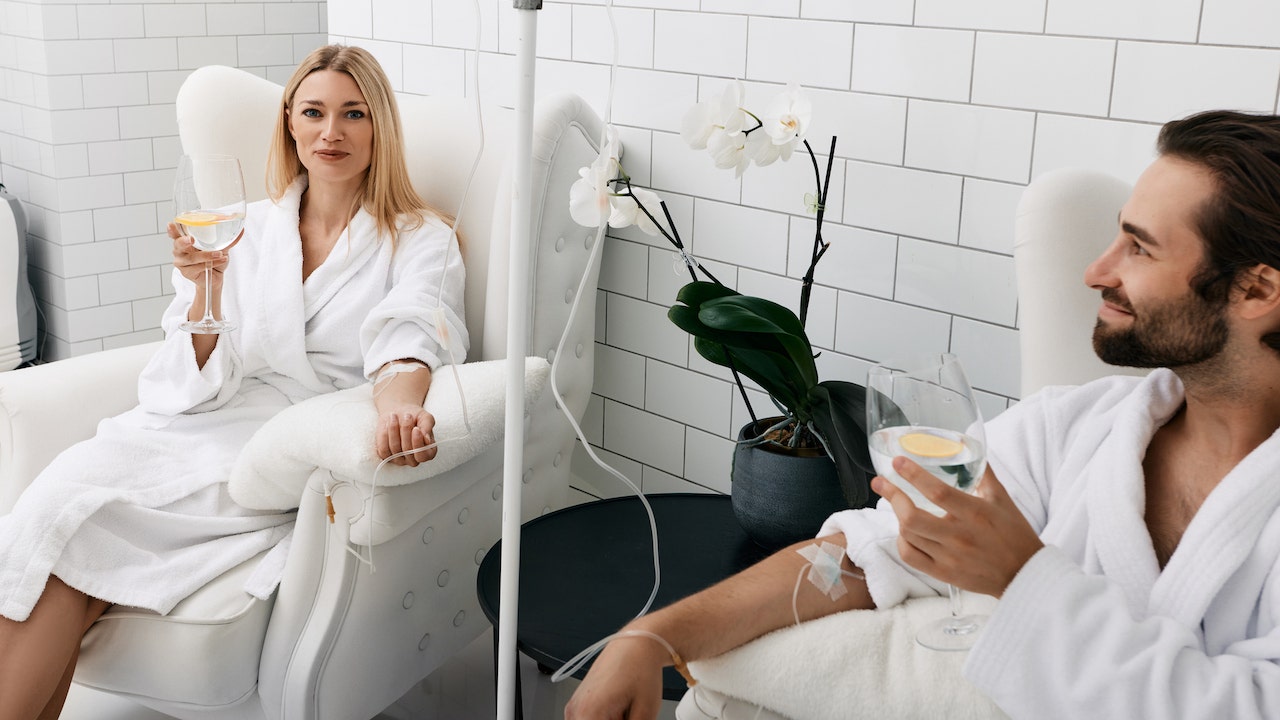IV hydration bars and clinics are becoming increasingly popular across the country as more people seek out ways to stay hydrated. These clinics offer intravenous (IV) fluids to clients, even when it’s not prescribed by their doctor. IV drips can contain saline solutions, vitamins, or electrolytes to combat dehydration from overexertion, flu-like symptoms, or lack of fluids. People visit these clinics for various reasons, including relief from hangovers, jet lag, and nausea. Additionally, some individuals are motivated by aesthetic reasons, aiming to improve their skin’s appearance.
Stephanie Lopez, a registered nurse at IV Bars in North Carolina, explained that dehydration can lead to imbalanced electrolytes and cause symptoms like fatigue, altered mental status, or constipation. IV hydration has benefits for the skin, organs, and muscles. The atmosphere in these clinics is similar to a spa, where clients relax in recliners while a licensed nurse or paramedic administers the IV fluids. The hydration session typically lasts between 30 to 50 minutes. Before receiving treatment, clients must fill out a health assessment and undergo a screening process.
While there are risks associated with opening the skin, clinics take measures to ensure aseptic conditions. Jennifer M., who visited an IV hydration center in Maryland, noticed positive changes in her mother’s energy levels, alertness, and skin quality after just one treatment. However, these services are not covered by insurance and can cost anywhere from $100 to $500 per session.
The COVID-19 pandemic led to a significant increase in the number of IV spas as people became more health-conscious. IV spas experienced a threefold increase, bringing the national count to nearly 600 sites. However, these spas have faced scrutiny and criticism from healthcare associations like the National Home Infusion Association (NHIA), who express concern about the lack of oversight and scientific evidence supporting their safety and efficacy.
In response to the criticism, Stephanie Lopez emphasized that IV Bars adhere to medical board regulations and have licensed personnel overseeing their operations. They use vitamins from reputable sources, with no synthetic products or fillers. While IV hydration services can help alleviate strain on emergency departments by preventing severe dehydration-related health issues, individuals should thoroughly research and vet these facilities. They should ensure that a licensed healthcare professional administers the IV, inquire about infection protocols, verify the legitimacy of the vitamins and solutions, and check if a medical doctor oversees the site.
It’s crucial to note that IV hydration bars are not FDA-approved and do not undergo the same regulations as medications. Dr. Fred Davis from Northwell Health advises caution, stating that there are no clinically validated studies confirming the efficacy of IV hydration therapy. He recommends recognizing signs of dehydration, such as fatigue, dry mouth, decreased urination, and thirst. Staying hydrated by drinking plenty of water is the best way to maintain proper hydration, with a recommended intake of six to eight 8-ounce glasses per day for individuals without specific fluid restrictions.
Denial of responsibility! VigourTimes is an automatic aggregator of Global media. In each content, the hyperlink to the primary source is specified. All trademarks belong to their rightful owners, and all materials to their authors. For any complaint, please reach us at – [email protected]. We will take necessary action within 24 hours.


